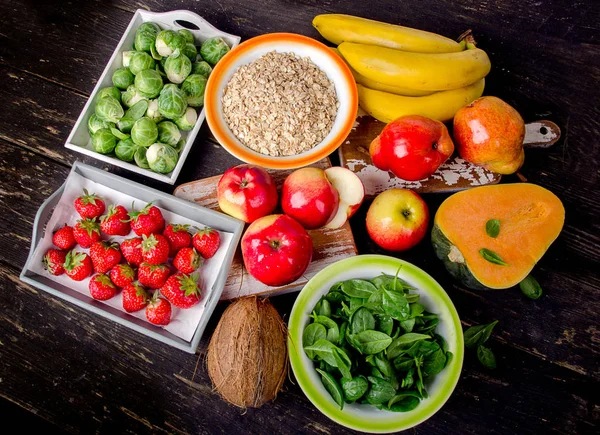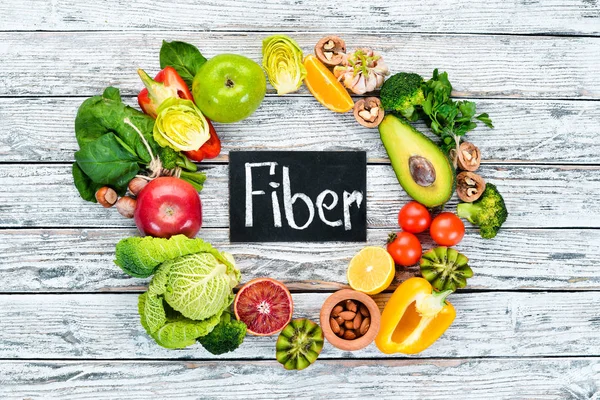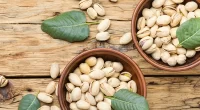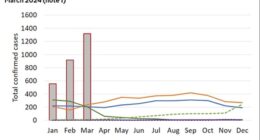In the realm of nutritional science, few elements elicit as much acclaim and recognition as fiber. The importance of fiber for optimal health cannot be overstated, as it plays a multifaceted role in maintaining and enhancing our well-being. In this comprehensive exploration, we will delve into the intricacies of fiber’s impact on our health, illuminating the profound benefits it bestows upon our bodies.

Table of Contents
- 1 Summary of “Fiber Rich Foods”
- 2 Understanding Fiber: A Complex Carbohydrate
- 3 The Recommended Daily Intake
- 4 The Benefits of Adequate Fiber Intake
- 5 Fiber’s Impact on Digestive Health
- 6 Fiber and Cardiovascular Health
- 7 Fiber’s Role in Weight Management
- 8 Fiber and Prevention of Chronic Diseases
- 9 What to Know Before Increasing Your Fiber Intake
- 10 Practical Tips for Incorporating Fiber
- 11 A Word From Our MD
- 12 Conclusion
- 13 FAQs
Summary of “Fiber Rich Foods”
Fiber is an important part of a healthy diet. It helps to regulate digestion, lower cholesterol levels, and control blood sugar levels. The FDA recommends adults should aim to consume 25-38 grams of fiber per day.
However, studies show that only 5% of US residents consume that much fiber a day. Among Americans, the average fiber intake is merely 16 grams per day.
Here’s a detailed breakdown of dietary reference intake of fiber, categorized by age and gender, as per the US IOM (Institute of Medicine).
The following table shows some of the best fiber-rich foods:
| Food | Serving Size | Fiber (grams) |
|---|---|---|
| Artichokes | 1 medium artichoke | 10.3 |
| Lentils | 1 cup cooked | 7.9 |
| Chia seeds | 2 tablespoons (28 grams) | 10.6 |
| Raspberries | 1 cup | 6.5 |
| Broccoli | 1 cup cooked | 5.1 |
| Split peas | 1 cup cooked | 7.3 |
| Black beans | 1 cup cooked | 6.7 |
| Pears | 1 medium pear | 5.4 |
| Oats | 1 cup cooked | 4.6 |
| Almonds | 1/4 cup (30 grams) | 3.5 |
| Avocados | 1/2 avocado | 2.7 |
It is important to note that fiber is found in both soluble and insoluble forms. Soluble fiber dissolves in water and helps to lower cholesterol levels and control blood sugar levels. Insoluble fiber does not dissolve in water and helps to regulate digestion.
Most foods contain a mix of soluble and insoluble fiber. The best way to get a variety of fiber in your diet is to eat a variety of fruits, vegetables, whole grains, and legumes.
Here are some tips for increasing your fiber intake:
- Start your day with a bowl of oatmeal or bran cereal.
- Add beans, lentils, or chickpeas to your soups, salads, and stews.
- Snack on fruits, vegetables, and nuts.
- Choose whole-grain breads, pastas, and cereals over refined grains.
- Cook with brown rice instead of white rice.
- Eat the skin of fruits and vegetables whenever possible.
Understanding Fiber: A Complex Carbohydrate

Fiber, often referred to as dietary fiber or roughage, is a form of carbohydrate derived from plant-based sources. Unlike traditional carbohydrates, such as starches and sugars, fiber is not digested or absorbed in the small intestine. Instead, it passes through our digestive system relatively intact, reaching the colon where it undergoes unique interactions with our gut microbiota.
The Recommended Daily Intake
So, how much fiber is needed in a day for optimal health? The recommended daily intake of fiber varies depending on age, sex, and overall health. However, a general guideline is as follows:
- Adults: Aim for 25 to 30 grams of fiber per day.
- Children: The daily intake for children varies by age, but it’s typically lower than that of adults.
The Benefits of Adequate Fiber Intake
Meeting your daily fiber requirements can lead to numerous health benefits:
- Digestive Health: Fiber promotes regular bowel movements, prevents constipation, and supports a healthy digestive system.
- Heart Health: Soluble fiber helps lower cholesterol levels, reducing the risk of heart disease.
- Weight Management: High-fiber foods are filling, which can help control appetite and support weight loss or maintenance.
- Blood Sugar Control: Fiber can help stabilize blood sugar levels, making it beneficial for individuals with diabetes.
- Colon Health: Insoluble fiber may lower the risk of developing colorectal problems.
Types of Fiber
Fiber comes in two primary forms: soluble and insoluble. Each type possesses distinct characteristics and health benefits.
- Soluble Fiber: This type of fiber dissolves in water to form a gel-like substance. Notable sources of soluble fiber include oats, beans, fruits like apples and citrus, and vegetables like carrots. Soluble fiber has been associated with reducing cholesterol levels and stabilizing blood sugar, making it a crucial ally in cardiovascular health and diabetes management.
- Insoluble Fiber: In contrast, insoluble fiber does not dissolve in water. Instead, it adds bulk to the stool and aids in regular bowel movements. Whole grains, vegetables like broccoli and cauliflower, and seeds are rich sources of insoluble fiber. Its contribution to digestive health is indispensable, as it prevents constipation and maintains bowel regularity.
Fiber’s Impact on Digestive Health
Bowel Regularity
The Importance of Fiber for Optimal Health shines particularly bright in the realm of digestive health. Insoluble fiber, with its capacity to promote bowel regularity, is instrumental in preventing constipation. When consumed in sufficient quantities, it softens the stool and facilitates its passage through the colon. This not only alleviates discomfort but also reduces the risk of developing chronic conditions such as hemorrhoids and diverticular disease.
Gut Microbiota Harmony
The human gut is a bustling ecosystem teeming with trillions of microorganisms, collectively known as the gut microbiota. These tiny inhabitants play a pivotal role in various aspects of our health, from immune function to nutrient absorption. Soluble fiber, through its fermentation in the colon, provides a rich source of nourishment for beneficial gut bacteria, promoting a harmonious gut microbiota composition. This equilibrium is crucial for a strong immune system and the prevention of gastrointestinal disorders.
Diverticular Disease Prevention
Diverticular disease, characterized by the formation of small pouches in the colon wall, can lead to painful inflammation and complications. Fiber, particularly insoluble fiber, is a potent shield against this ailment. Its ability to add bulk to stool minimizes pressure in the colon, reducing the likelihood of pouch formation. Consistent fiber intake is a pragmatic strategy for diverticular disease prevention.
Fiber and Cardiovascular Health
Cardiovascular health is another domain where the importance of fiber for optimal health comes to the forefront. Soluble fiber, in particular, plays a pivotal role in mitigating risk factors associated with heart disease.
Cholesterol Management
High levels of cholesterol, especially low-density lipoprotein (LDL) cholesterol, are a well-known risk factor for cardiovascular disease. Soluble fiber has a remarkable ability to bind with cholesterol molecules, escorting them out of the body through excretion. This action can result in significant reductions in LDL cholesterol levels, thereby lowering the risk of atherosclerosis and coronary artery disease.
Blood Pressure Regulation
Fiber’s beneficial effects on cardiovascular health extend to blood pressure regulation. A diet rich in fiber has been associated with reduced blood pressure, primarily due to its ability to enhance blood vessel function and reduce inflammation. By maintaining healthy blood pressure levels, fiber contributes to the overall well-being of the cardiovascular system.
Fiber’s Role in Weight Management
For individuals striving to achieve and maintain a healthy weight, recognizing the importance of fiber for optimal health is essential. Fiber offers several mechanisms that support weight management.
Satiety and Reduced Caloric Intake
One of fiber’s remarkable attributes is its ability to induce a feeling of fullness or satiety. When consumed, fiber-rich foods take longer to chew and digest, providing a prolonged sense of satisfaction. This leads to reduced overall caloric intake, making it an invaluable tool for weight control.
Stabilized Blood Sugar Levels
Fluctuations in blood sugar levels can trigger hunger and cravings, often leading to overeating. Soluble fiber’s role in stabilizing blood sugar is pivotal in preventing these fluctuations. By slowing down the absorption of glucose, fiber helps maintain steady energy levels and reduces the urge to snack on high-calorie, low-nutrient foods.
Fiber and Prevention of Chronic Diseases
The significance of fiber in preventing chronic diseases goes beyond digestive and cardiovascular health. Research has unveiled its potential to reduce the risk of various ailments, including type 2 diabetes and certain types of cancer.

Type 2 Diabetes Prevention
Type 2 diabetes is a metabolic disorder characterized by elevated blood sugar levels. Soluble fiber’s ability to regulate blood glucose levels is instrumental in diabetes prevention. By slowing down the absorption of sugar and improving insulin sensitivity, fiber plays a protective role against the development of this chronic condition.
Colorectal Cancer Risk Reduction
Colorectal cancer is a formidable adversary in the realm of oncology. However, maintaining an ample intake of fiber, particularly from vegetables, fruits, and whole grains, has been associated with a reduced risk of colorectal cancer. Fiber’s mechanisms in cancer prevention include promoting regular bowel movements, reducing inflammation, and inhibiting the growth of cancerous cells.
What to Know Before Increasing Your Fiber Intake
Here’s what you should know before increasing your daily intake of fiber:
- Gradual increase: It’s essential to increase your fiber consumption gradually because a sudden jump can lead to bloating and abdominal cramping. Start by adding small portions of high-fiber foods to your diet and increase them over several days or weeks.
- Hydration: As mentioned above, fiber absorbs water, which can cause dehydration if you fail to drink plenty of water. Therefore, it’s important to stay hydrated by increasing your water intake when consuming more fiber.
- Allergies and sensitivities: Be aware of any food allergies or sensitivities you may have when increasing fiber. Some high-fiber foods, such as wheat or nuts, can trigger allergic reactions in sensitive individuals.
Practical Tips for Incorporating Fiber
With the importance of fiber for optimal health established, the question arises: how can individuals ensure they receive an adequate daily dose of this invaluable nutrient? Here are some practical tips to help you increase your fiber intake:
- Embrace Whole Grains: Opt for whole grain options such as brown rice, quinoa, and whole wheat bread instead of refined grains.
- Fruit and Vegetable Variety: Incorporate a colorful array of fruits and vegetables into your daily diet to benefit from a wide range of fiber types and other essential nutrients.
- Legumes and Pulses: Beans, lentils, and chickpeas are excellent sources of both soluble and insoluble fiber. Add them to soups, salads, or main dishes.
- Nuts and Seeds: Snack on nuts and seeds like almonds, chia seeds, and flaxseeds for a fiber-rich boost.
- Read Labels: When shopping for packaged foods, check the nutrition labels for fiber content. Choose products with higher fiber content and lower added sugars.
- Gradual Increase: If you’re not accustomed to a high-fiber diet, gradually increase your fiber intake to allow your digestive system to adapt.
- Stay Hydrated: Fiber absorbs water, so it’s important to drink plenty of fluids to prevent digestive discomfort.
A Word From Our MD
Here is what some experts have to say about the importance of fiber for optimal health:
- “Fiber is essential for a healthy digestive system. It helps to keep stool soft and bulky, making it easier to pass. This can help to prevent constipation and other digestive problems.” – Dr. Michael Lelah, registered dietitian and author of The Fiber Fueled Life
- “Fiber can also help to lower cholesterol levels and control blood sugar levels. This is important for reducing the risk of heart disease and type 2 diabetes.” – Dr. Andrew Weil, integrative medicine physician and author of Spontaneous Healing
- “Fiber also plays a role in gut health. It helps to feed the beneficial bacteria in the gut, which are important for overall health and well-being.” – Dr. David Perlmutter, neurologist and author of Grain Brain
Overall, there is a strong consensus among experts that fiber is essential for optimal health. Eating a high-fiber diet can help to improve your digestive health, lower your risk of chronic diseases, and boost your overall well-being.
Conclusion
In conclusion, the importance of fiber for optimal health cannot be overstated. Its multifaceted benefits extend from digestive health and cardiovascular well-being to weight management and chronic disease prevention. By incorporating a variety of fiber-rich foods into your daily diet, you can harness the power of this remarkable nutrient to enhance your overall health and vitality. Remember, the road to optimal health begins with a fiber-rich plate.
FAQs
Q1: What is dietary fiber, and why is it important for health?
A1: Dietary fiber is a type of carbohydrate found in plant-based foods like fruits, vegetables, whole grains, and legumes. It’s important for health because it aids in digestion, helps maintain a healthy weight, and supports heart health.
Q2: How much fiber do I need daily for optimal health?
A2: The recommended daily intake of fiber varies, but for most adults, aiming for 25 to 30 grams of fiber per day is a good target. Children have slightly different requirements based on their age and size.
Q3: What are the different types of dietary fiber?
A3: There are two main types of dietary fiber: soluble and insoluble. Soluble fiber dissolves in water and helps lower cholesterol and stabilize blood sugar. Insoluble fiber adds bulk to stool and promotes regular bowel movements.
Q4: How can fiber benefit my digestive health?
A4: Fiber adds bulk to your stool, making it easier to pass, and prevents constipation. It also supports a healthy gut by promoting the growth of beneficial gut bacteria.
Q5: Can fiber help with weight management?
A5: Yes, fiber-rich foods are filling and can help control your appetite. This can be beneficial for weight loss or maintaining a healthy weight.
Note: This article is written based on scientific evidence found by the coza24.com team. Sources are duly referenced with keywords hyperlinked to source websites and are clickable for reference.









